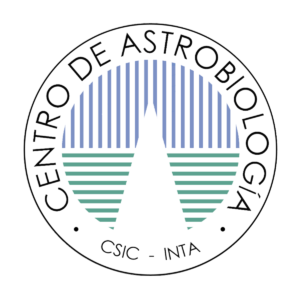The trail of sulphur: from molecular clouds to life SUL4LIFE

Sulphur is the tenth most abundant element in the Universe and is known to play a significant role in biological systems. Moreover, some sulphur compounds have been proposed as necessary catalysts to form amino acids in the interstellar medium. While the carbon and oxygen budgets have been extensively studied, sulphur is the only element whose […]
MARS 2020 – MEDA

Mission launch: 30/07/2020 Mars landing: 18/02/2020 Landing site: Jezero Crater NASA’s Mars 2020 mission is part of NASA’s Mars Exploration Program and comprises the Perseverance rover, similar to the MSL mission’s Curiosity rover, and the Ingeniuty helicopter. Mars 2020 is designed to study the geology of Mars and detect signs of life from the past. […]
PLATO

PLATO (PLAnetary Transits and Oscillation of stars) will be the 3rd medium-sized mission (M3) of the European Space Agency’s science programme (Cosmic Vision). It was selected in February 2014, with a launch planned for the end of 2026 and a lifetime of 6 years, extending to the first five years of the 2030s. PLATO will […]
CARMENES

Project webpage: https://carmenes.caha.es All publications: https://carmenes.caha.es/ext/science/index.html#anchor:refereed Astronomer responsible for the instrument: José A. Caballero CARMENES (Calar Alto high-Resolution search for M dwarfs with Exoearths with Near-infrared and optical Échelle Spectrographs) is an innovative instrument designed to search for Earth-like planets. It is fitted on the 3.5-meter telescope at Calar Alto Observatory in Almeria, jointly operated by […]
MarsFirstWater

EC Consolidator Grant – ERC-CoG 2018 PI: Alberto González Fairén CO-Is: Armando Azúa Bustos (CAB), Francesco Salese (CAB), Antonio Molina Jurado (CAB), Laura García Descalzo (CAB), Miguel Ángel Fernández Martínez (McGill University) PhD students: Cristina Robas García (CAB) There is now broad agreement that a complex hydrological cycle existed on the surface of ancient Mars, […]
RamOnMars

Implementation period: 2020-2022 Funding Agency: Ministry of Science and Innovation Reference: PID2019-107442RB-C32, project coordinated with the University of Valladolid (PI: Fernando Rull) and INTA (PI: Tomás Belenguer). ExoMars landing site: Oxia Planum MMX landing site to be determined PI1: Olga Prieto Ballesteros PI2: Daniel Carrizo Gallardo Science Team Andoni G. Moral Inza (Project manager), Laura Seoane […]
CAMELIA

CAMELIA is a coordinated project funded by the Plan Estatal de I+D+i 2019 (State Programme for the Generation of Knowledge and Scientific and Technological Strengthening of the R&D&I System). This is a coordinated project between an atmospheric physics project CAMELIA-ATM (INTA; PID2019-104205GB-C21) and a microbiology project CAMELIA-MICRO (CSIC; PID2019-104205GB-C22). Period : 01/06/2020 – 31/05/2023 Principal […]
HARMONI for ELT

Period: since 2016 CAB’s participation in the development of HARMONI: https://auditore.cab.inta-csic.epereiras/harmoni/ The European Extremely Large Telescope (ELT) is led by the European Southern Observatory (ESO) and will address many of the unanswered questions about the Universe. It is the world’s largest optical/near-infrared telescope and will gather 13 times more light than the largest optical telescopes […]
CHIMOSS

Prebiotic Chemistry: CHIMOSS (ESP2017-89053-C2-2-P) is a coordinated project funded by the Plan Estatal de I+D+i 2017 ( State Programme for the Promotion of Scientific and Technical Research of Excellence, State Sub-programme for the Generation of Knowledge). Period: 01/01/2018 – 31/12/2020 Principal investigators: Eva Mateo-Martí y Marta Ruiz-Bermejo Other team members: María Paz Martín Redondo (CAB), José […]
COOL

COOL (Cosmic Origins of Life; 2019-T1/TIC-15379) Principal Investigator: Victor M. Rivilla, funded by the Talent Attraction for Experienced Doctors programme The project COOL (Cosmic Origins Of Life), aims at elucidating to what extent the first biochemically-relevant species leading to the origin of Life could have appeared already in the interstellar medium. For this, COOL is […]
ICE-SPACE

Períod: 09/2021-09/2023 Funding Agency: MICINN Project code: PID2020-118974GB-C21 PI: Guillermo M. Muñoz Caro, Miguel Á. Satorre Aznar (UPV Alcoy) The main research topic of both institutions is the experimental study of astrophysical ice properties and processes. For this, vacuum set-ups are used to mimic the conditions in interstellar and circumstellar environments, along with icy moon […]






